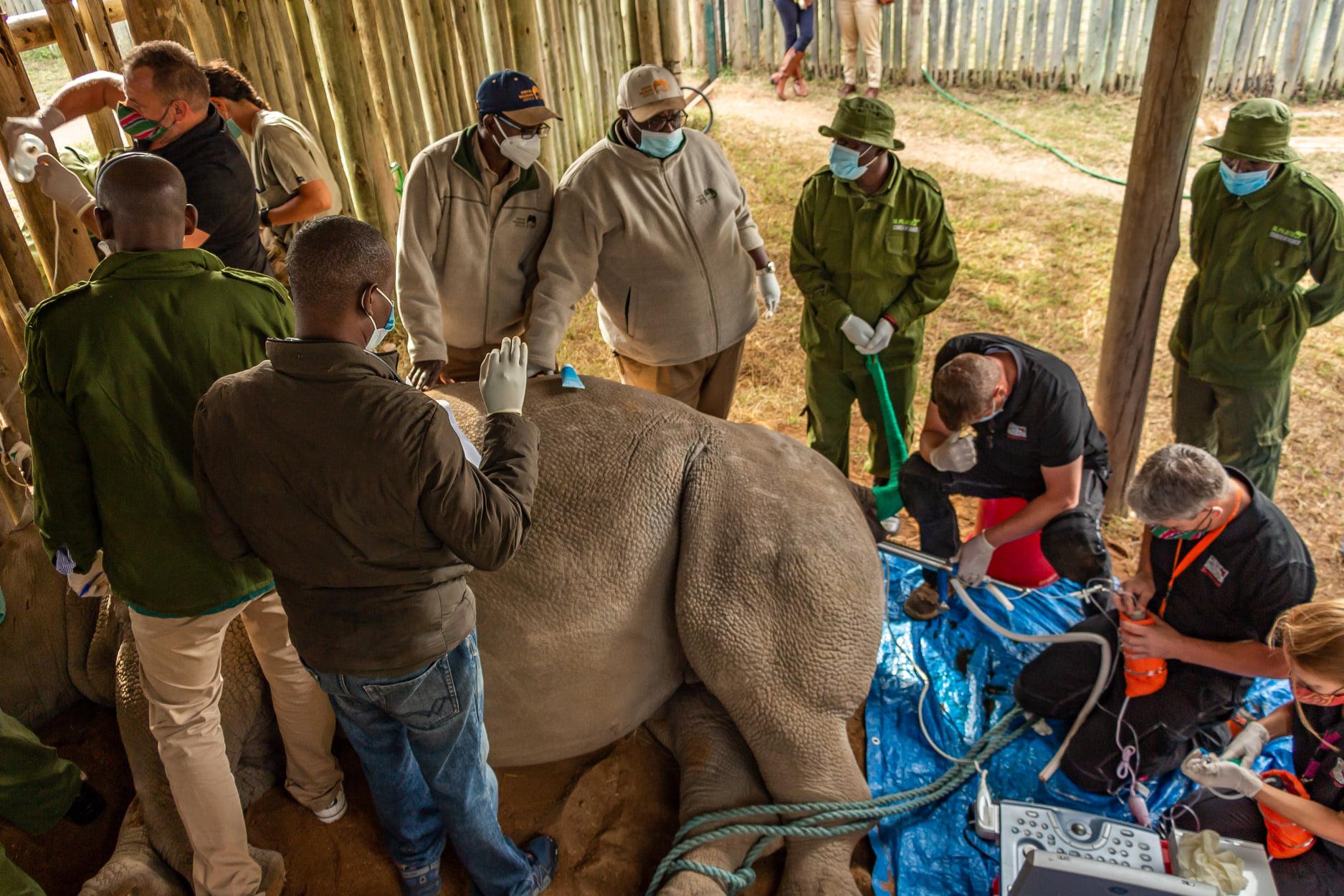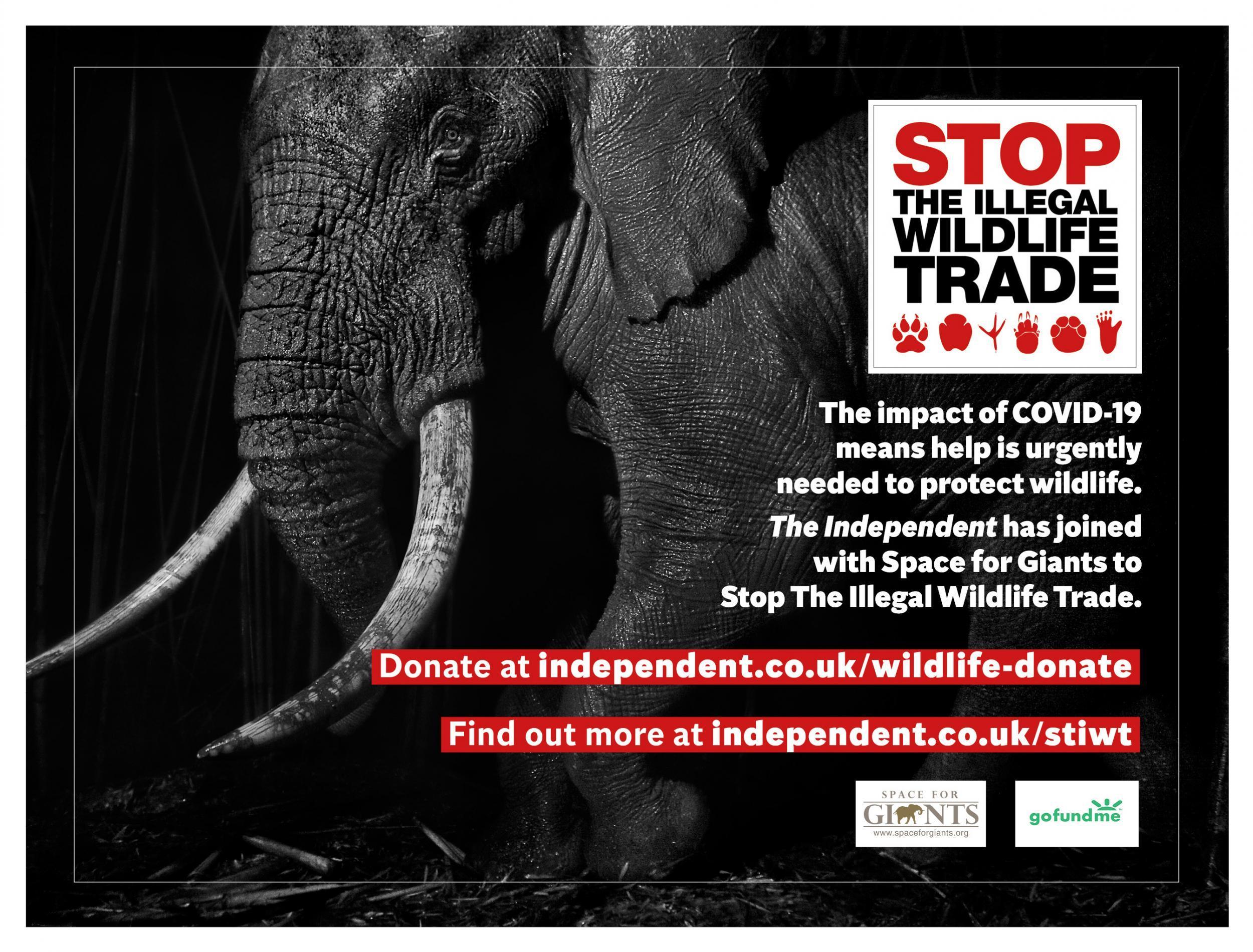Covid deals a blow to saving critically endangered Northern White rhino
We are working with conservation charity Space for Giants to protect wildlife at risk from poachers due to the conservation funding crisis caused by Covid-19. Help is desperately needed to support wildlife rangers, local communities and law enforcement personnel to prevent wildlife crime. Donate to help Stop the Illegal Wildlife Trade here.

Your support helps us to tell the story
From reproductive rights to climate change to Big Tech, The Independent is on the ground when the story is developing. Whether it's investigating the financials of Elon Musk's pro-Trump PAC or producing our latest documentary, 'The A Word', which shines a light on the American women fighting for reproductive rights, we know how important it is to parse out the facts from the messaging.
At such a critical moment in US history, we need reporters on the ground. Your donation allows us to keep sending journalists to speak to both sides of the story.
The Independent is trusted by Americans across the entire political spectrum. And unlike many other quality news outlets, we choose not to lock Americans out of our reporting and analysis with paywalls. We believe quality journalism should be available to everyone, paid for by those who can afford it.
Your support makes all the difference.A multinational collaboration to save the northern white rhinoceros from extinction has suffered setbacks due to the coronavirus pandemic.
The illegal wildlife trade has pushed the northern white rhino to the brink of extinction, with thousands slaughtered for their horn that is in demand in east Asia for its purported medicinal properties.
The Ol Pejeta Conservancy in northern Kenya is home to the last two remaining members of the species, females called Najin and Fatu.
Last year a consortium of scientists, conservationists and vets joined forces to fight for the survival of the northern white. Having formulated a strategy to assist reproduction through in-vitro fertilisation (IVF), in August 2019 the team began by harvesting eggs from both of the females.
In a groundbreaking procedure, three of the eggs were then fertilised in laboratories in Italy using frozen sperm from deceased northern white males.
However, the pandemic forced efforts to be paused at that stage. The team are still waiting to progress to the next part of the process, which is to transfer the three embryos to surrogate southern white rhinos in Kenya.
Kenya Wildlife Service’s head of veterinary services, Dr David Ndeereh, says: “Harvesting more eggs was slated for the first week of May, but restrictions on travel to contain the spread of the pandemic prevented it.”
Earlier this month, for the first time since the outbreak of the pandemic, the team successfully harvested 10 more eggs from the two rhinos.
Lead scientist Thomas Hildebrandt says: “The procedure is complex and delicate, as the eggs must be transferred from Kenya to laboratories in Italy within 24 hours.”
Harvesting as many eggs as possible is vital to increase the chances of the species surviving. Hildebrandt adds that there is urgency because one of the rhinos, Najin, is 31 years old. “We are planning to pick more eggs in December before we retire her,” he says.
The northern white rhino was once abundant across central Africa, but soaring rates of hunting for its horn have devastated the population.
The Independent’s Stop the Illegal Wildlife Trade campaign was launched to seek an international effort to clamp down on poaching and the illegal trade of wild animals.
In 2018, the last male northern white rhino, called Sudan, died of natural causes, aged 45, in Ol Pejeta Conservancy. Before his death, Sudan was under 24-hour armed guard to protect him from the threat of poachers.
Samuel Mutisya, the head of wildlife at Ol Pejeta, says he is hopeful for the future of the species, with plans to implant the embryos in the surrogate rhino mothers by next year.
The conservancy’s CEO, Richard Vigne, says: “Our efforts have been put back by the pandemic. In the race to save the northern white rhino, it was scheduled that eggs should be harvested from the two females every three to four months to maximise on survival rates.”
The pioneering project is funded by the German federal ministry of education and research, with an estimated cost of £5.5m. It is a collaboration between the Kenya Wildlife Service, the Leibniz Institute for Zoo and Wildlife Research (Leibniz-IZW) Berlin, Avantea, Dvur Kralove Zoo, and Ol Pejeta Conservancy.
Kenya’s cabinet secretary of tourism and wildlife, Najib Balala, says the partnership is a milestone in conservation. “The fact that Kenya is at the centre of this scientific breakthrough also makes me very proud. It’s amazing to see that we will be able to reverse the tragic loss of this subspecies through science,” he says.
Balala adds that the fight to save the northern white should be a wake-up call for the world, and that we must utilise science and technology to ensure that no other species faced with similar threats becomes extinct.

Join our commenting forum
Join thought-provoking conversations, follow other Independent readers and see their replies
Comments